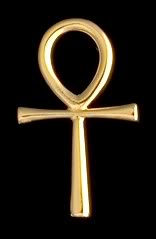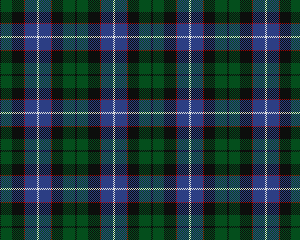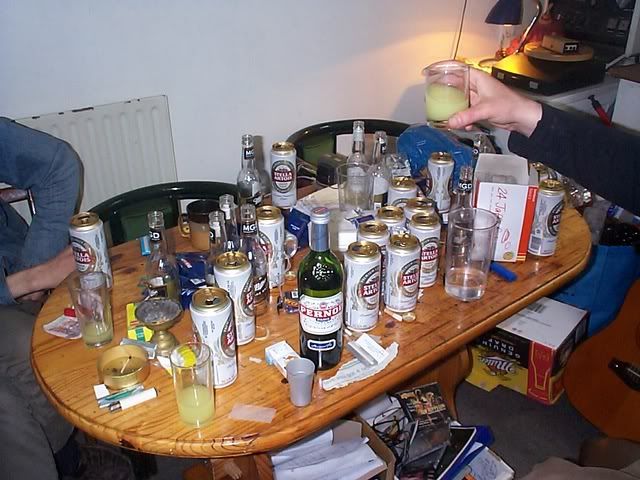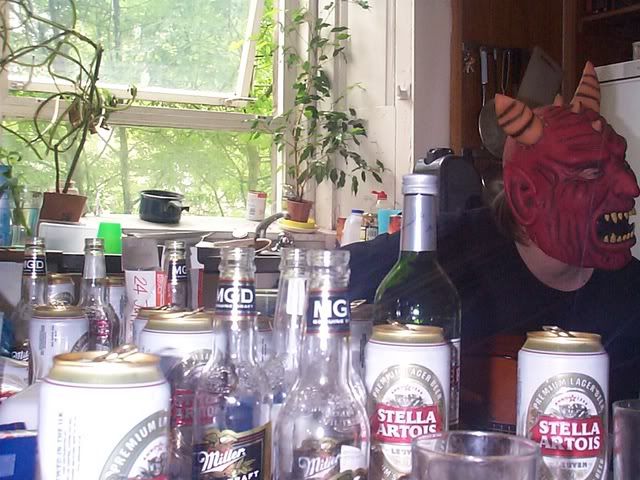
Hi Anonymous.
How did I end up with this handle ? At the time I registered I was reading the book Fools Die ! by Mario Puzo. Quite a good book, with a lot of fools, all of whom do indeed expire and shuffle off their mortal coils. The central character in that book is called John Merlyn and he survives, the implication being, I suppose, that he wasn't a fool.
It must have been 1 of the 24 selves that make up 'me'.
| The Skeptic | The Mystic |
| The Rationalist | The Wizard |
| The Philosopher | The Fool |
| The Genius | The Shaman |
| The Father | The Son |
| The Mathematician | The Musician |
| The Engineer | The Chef |
| The Student | The Dreamer |
| The Lover | The Healer |
| The Anarchist | The Discordian |
| The Brother | The Friend |
| The Angel | The Demon |
Philosophy
It's All Entirely Pointless
Take eating. The only point in that is to eat again later. Eating has no point outside of itself. There are certain activities that everyone seems to assume have some point, like improving the lot of humanity. I'm afraid that's pointless, too. All one does when "improving the lot of humanity" is to project one's own prejudices onto a group seen as less fortunate than oneself. Who's to say that your own prejudices actually improve the quality of life of the target group ? This is evident in America exporting the American way of life. Prejudices lead people to think that their way is better, and anyone who can't partake of their way is a poor unfortunate. Actually Capitalism decreases quality of life in many cases, meaning people have to work more than is good for them.
Chasing after power, fame, money, material possesions, attractiveness or social status are too also pointless. (You probably figured that out.)
However (and it's a big however) there is a positive side to the pointlessness of human activity. If all the stuff that received wisdom suggests not only has a point, but is crucially important, is, in fact, pointless, then do what you like, and don't take crap from anyone.
It's All Meant To Be
(i.e. the complete antithesis of the philosophy outlined above).
Far out synchronicities sometimes scream that there is a cosmic plan, and everything has a point, a piece in a very large jigsaw puzzle, or a jewel in Indra's Net.
it happened for a reason, it happened for no reason, it happened for a reason, there was no reason why that happened, there must have been some reason for it, that happened for no reason ...
Music
I've been playing music for over 20 years, and I'm the last person who could tell you what music 'is'. It's kind of like defining creativity. One defintion of creativity is :
- Creativity is what creative people do.
Although it is a circular defintion, it appeals to me because it is so open ended, and really because of the nature of creativity, seems a satisfactory definition to me. Using a similiar logic I could define music thus :
- Music is what musicians do.
This then leads to considering that peculiar breed : the musician, and I have met many, many musicians over the years. Some of them actually think about what music 'is' and often they would define it as
Music is a sound that is pleasing to the ear.
I've heard that definition and others like it from musicians who think that The Beatles represent the musical high-water mark of all history.
What's wrong with the music industry
First of all the title. Music isn't a product like tins of beans. Music isn't an industry. But I think it can be said that musicians were able to communicate with an audience via recorded media or live concerts more effectively in the past. I see 'the music industry' so-called going worng around 1973, the year of Dark Side Of The Moon, of Led Zeppelin at the peak of their popularity, the year Yes released their triple live album Yesssongs and of ... the Oil Crisis. After the Oil Crisis even a bar of soap cost 50p, and a triple album became an unthinkable excess.
Previous to this there were some good albums released that were about music and communicating ideas, rather than making money. The music industry itself didn't realise it had been irrevocably wrecked by the price of black sludge that comes out the ground, and managed to carry on in a delusional state of denial, occasionally producing a good album or two despite itself.
The 80s ... do I have to say any more ?
The 90s saw anomie as the fashionable current, as purveyed by say, Nirvana and also the rise of music technology. Also some utterly cynical marketing efforts like boy-bands (Westlife, Boyzone, Take That ...) and girl-bands (Spice Girls, Girls Aloud, Sugababes ... ) The industry had woken up from the delusion and now knew it was in business, which involves making money not music.
Today the music industry seems to me a complete joke. A travesty. Glorified karaoke. And this ties in with musicians who think that The Beatles made the best music of all time. Today it seems to me that people think that music is good if it sounds like something else. As an example take the X-Factor. Really, that is simply karaoke. There is no emphasis on the creative ability of the contestants — they don't perform thier own songs. A performer is considered good if they can sound like someone else, preferably someone else who sold a lot of records and made record executives rich. The industry is reluctant, unwilling rather, to take a chance on anything original.
On the positive side today musicians can bypass the whole awful industry and use the internet to connect with an audience.
Books
Books I've read :
Robert Anton Wilson — Illuminati Papers, Illuminatus!, *Cosmic Trigger vols I, II, & III, *Prometheus Rising, Quantum Psychology
Timothy Leary — Design for Dying, Exopsychology
Alan Watts — Way of Zen
Jay Stevens — Storming Heaven
Carl Jung — Psychological Reflections
R.L. Gregory — Eye and Brain
R.D. Laing — The Divided Self
Thomas A. Harris — I'm OK, You're OK
Eric Berne — Games People Play, What Do You Say After You Say Hello ?
Desmond Morris — Bodywatching, The Human Zoo
Jonathan Miller — Modern Masters : McLuhan
George Lakoff and Mark Johnson — Metaphors We Live By
Plato — The Republic
William Blake — The Marriage of Heaven and Hell
Descartes — Meditations of First Philosophy
Arthur Kenyon Rogers — A Student's History of Philosophy
Yamamoto Tsunemoto — Hagakure
Miyamoto Musashi — A Book of Five Rings
Aleister Crowley — *Magick, 777, Book of Thoth
Chrisopher Hyatt — Taboo
William G. Gray — Qabalistic Concepts
Eliphas Levi — Transcendental Magic
Diana Fernando — The Dictionary of Alchemy
E.E. Rehmus — The Magician's Dictionary
Marian Green — The Elements of Natural Magic
Murry Hope — Celtic Magic
Alice Bailey — Seven Rays and Initiations
P.D. Ouspensky — A New Model of The Universe
G.I. Gurdjieff — Views from the Real World
J. Krishnamurti — Journal, The Awakening of Intelligence, On Fear
J. Krishnamurti and David Bohm — The Ending of Time
Joseph Campbell — *The Masks of God II : Occidental Mythology, *The Masks of God IV : Creative Mythology
Fritjof Capra — The Tao of Physics
Piers Paul Read — The Templars
Christopher Knight and Robert Lomas — The Hiram Key
James Redfield — The Celestine Prophecy
Paul Hawken — The Magic of Findhorn
Lyall Watson — Supernature
Shakti Gawain — Creative Visualisation
J. Maya Pikington — Mind Over Matter
Daniel Goleman — Emotional Intelligence
James Gleick — Faster, Genius, Chaos
Stephen Wolfram — A New Kind of Science
Steven Levy — Artificial Life
Roger Lewin — Complexity
Rudy Rucker — The Fourth Dimension
Robert Gilmore — Alice in Quantum Land
Richard Feynman — Q.E.D.
Brian Greene — The Elegant Universe
John Barrow — Impossibility, The Book of Nothing
James Lovelock — The Ages of Gaia
John Gribbin — The Hole in the Sky
John Gribbin and Mary Gribbin — Being Human
John Gribbin and Martin Rees — Cosmic Coincidences
David Wells — The Penguin Dictionary of Curious and Interesting Numbers
David Blatner — The Joy of Pi
Nick Cook — The Hunt for Zero Point
E.F. Schumacher — Small is Beautiful
Niall Ferguson — The Cash Nexus
Steven D. Levitt and Stephen J. Dubner — Freakonomics
Richard Dawkins — The Ancestor's Tale
Douglas Hofstader — *Godel, Escher, Bach
Hunter S. Thompson — Fear and Loathing in Las Vegas, The Proud Highway
Iain Banks — The Wasp Factory, The Bridge
Alisdair Gray — Poor Things
Lewis Grassic Gibbon — Sunset Song
Charles Dickens — A Tale of Two Cities
Will Self — *Great Apes, The Quantity Theory of Insanity, Grey Area
H.P. Lovecraft — At the Mountains of Madness, Dagon and Other Tales
Robert Pirsig — Zen and the Art of Motorcycle Maintenance
Kurt Vonnegut — Slaughterhouse Five, Bagombo Snuff Box
J.D. Salinger — The Catcher In The Rye
Jack Kerouac — On The Road, Vanity of Dulouz, Desolation Angels
William Gibson — Neuromancer, Count Zero (rubbish, I thought)
Phillip K Dick — Valis, Do Androids Dream of Electric Sheep ?, The Zap Gun, The Penultimate Truth
K.W. Jeter — Dr. Adder
L. Ron Hubbard — Battlefield Earth (the worst book I've ever read)
Douglas Adams — Dirk Gently's Holistic Detective Agency, The Hitchhiker's Guide to the Galaxy (all)
Frank Herbert — Dune, Dune Messiah, Children of Dune, Hellstrom's Hive
Robert A. Heinlein — Stranger In A Strange Land
Stanislav Lem — A Perfect Vacuum, The Futurological Congress, Solaris
Victor Pelevin — The Life of Insects
Harry Harrison — The Stainless Steel Rat (all), Captive Universe, Bill the Galactic Hero, Two Tales and Eight Tomorrows
Philip Jose FArmer — Riverworld (all)
Isaac Asimov — Foundation (all)
Akutagawa Ryunosuke — Rashomon
Aldous Huxley — Brave New World, Doors of Perception, Heaven and Hell
Mario Puzo — Fools Die!, The Godfather
James Clavell — Shogun, King Rat
George Orwell — 1984, Animal Farm
Henri Charrière — Papillon, Banco
Joseph Heller — Catch 22
Ian Pears — An Instance of the Fingerpost
Neil Gaiman and Terry Pratchet — Good Omens
Music Books
Frank Zappa and Peter Occhiogrosso — The Real Frank Zappa Book
Neil Slaven — Electric Don Quixote
Rolling Stone History of Rock Music
Beatles Biography
Rolling Stones Biography
Blondie Biography
Elvis Costello Biography
Hendrix Biographies (a few)
Peter van der Merwe — Origins of the Popular Style
Joseph Kerman — Listen, The Beethoven Quartets
Richard Taruskin — The Oxford History of Western Music
A.H. Benade — Fundamentals of Musical Acoustics
Alexander Wood — The Physics of Music
R.J. Stewart — Music and the Elemental Psyche
Looking at that list there really is not a lot of sense in it. Out of all of them I have actually bought only a handful. The rest I've come across, borrowed, got out the library, or been given as presents. A lot of people compile lists of 'must read' books. I wouldn't say there are any books there you 'must read'. Everyone would seem to wind their own unique path through the Gutenberg Galaxy. I've marked with a star the books that have had the most effect on me.
My Clan Tartan

The idea of Tartan being a badge of Clan identity is a myth, dating from the 19th century, started by The Highland Society of London, after some sentimental re-examining of Scotland and the Highland way of life sparked by Ossian.
Drinking with The Devil


Alcohol probably isn't very good for a person.
See Also